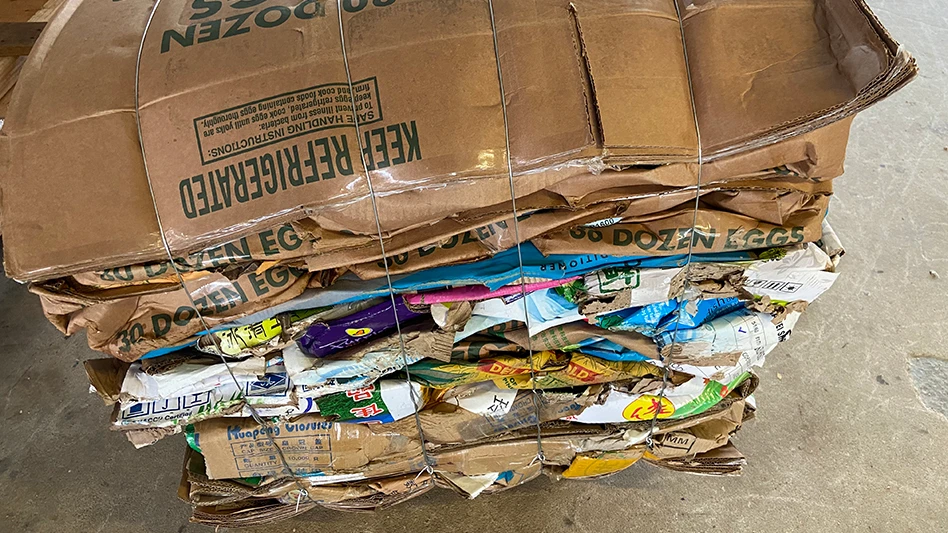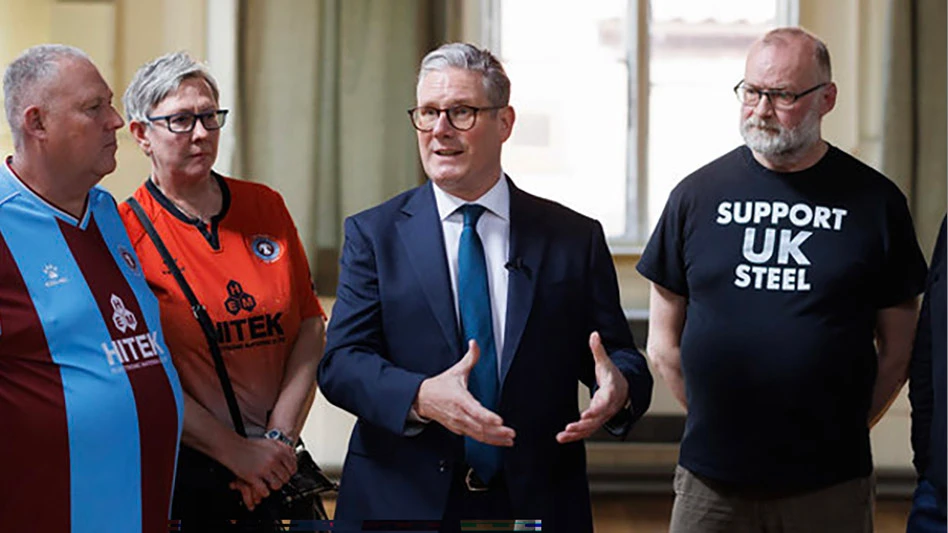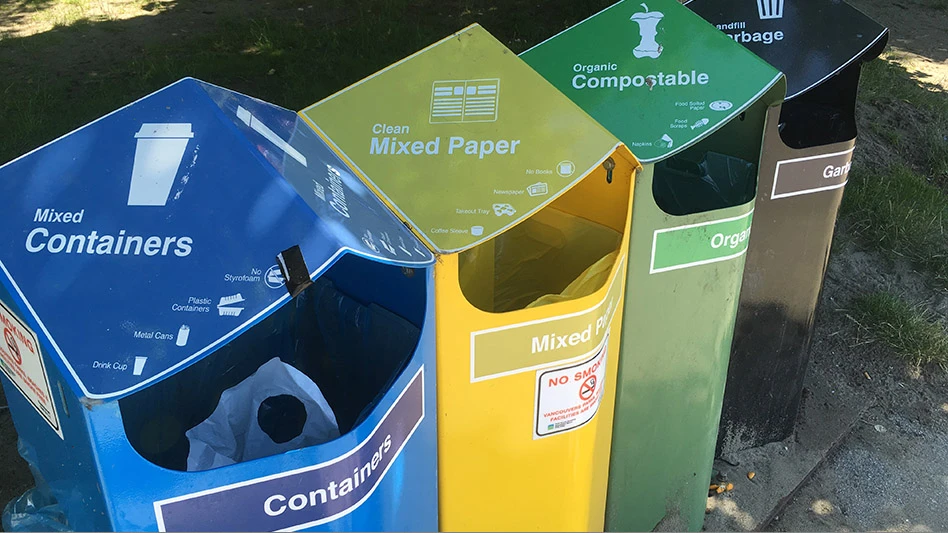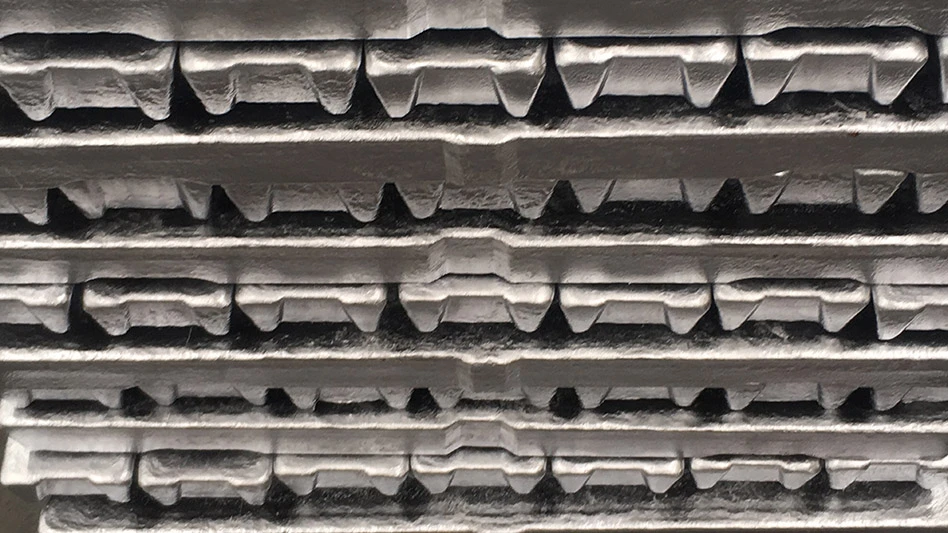Export markets for plastic scrap may have U.S. plastics dealers scratching their heads these days.
According to a source based in the Southeast, Chinese tariffs on imports of plastic scrap have served to cool down that market during the last few months. However, a source based in the Midwest says he thinks things may be poised to change in favor of the United States.
"I have a feeling exports are going to go up in price," the Midwestern reprocessor says, citing China’s three-month ban on the import of plastic scrap from the European Union as the driving force. The ban began July 12. As a result of the ban, he says, "The U.S. is the prettiest girl at the ball." Therefore, he says he expects exports of plastic scrap from the U.S. to China to increase during the next three months, as long as trade embargos, higher duty fees or quotas don’t come into play.
While Malaysia doesn’t have the appetite for plastic scrap that China has, the country has announced
|
|
The ministry has also appointed three companies to handle and mange plastic scrap materials in the country, to the protests of 21 factory owners whose operations also rely on the material, according to local media reports.
While export markets are sending mixed signals to recyclers and reprocessors, the domestic front has shown relatively steady, if not spectacular, performance.
Generation has slowed somewhat, which is typical of industrial markets during the summer months. Skittishness on the part of the housing and automotive markets has also played a role, according to the reprocessor in the Southeast. She says she hopes for an improvement come fall, as the automotive market gears up for the new model year and the agricultural market heats up in the South.
Currently, however, she says, none of her customers want to build up inventory, with some moving to just-in-time shipments. This approach to inventory may work with virgin plastics, she says, but the unpredictable supply of secondary plastics makes it a challenge.
(Additional news about plastics recycling markets is available online at www.RecyclingToday.com.)
Saudi Company Buys GE Plastics
GE, Fairfield, Conn., has announced a definitive agreement to sell its GE Plastics division to Saudi Basic Industries Corporation (SABIC) for an announced value of $11.6 billion in cash, plus the assumption of liabilities. Closing of the deal has been targeted for the third quarter of this year.
"SABIC is the right owner for our customers and our employees," says GE Chairman and CEO Jeffrey R. Immelt. "This transaction will transform the plastics industry by combining SABIC’s low-cost materials position and global reach with GE Plastics’ strong marketing and technology capabilities."
Mohammed Al-Mady, vice chairman and CEO of SABIC, says, "This acquisition of GE Plastics represents another step in SABIC’s growth and diversification to become one of the world’s leading manufacturing companies."
GE Plastics is a $6.6 billion global supplier of plastic resins widely used in automotive, health care, consumer electronics, transportation, performance packaging, construction, telecommunications and optical applications. It is headquartered in Pittsfield, Mass., and employs 10,300 people in 60 locations worldwide.
SABIC is one of the world’s 10 largest petrochemicals manufacturers ranked by market capitalization and is among the world’s market leaders in the production of polyethylene, polypropylene, glycols, methanol and fertilizers, as well as the fourth largest polymer producer, according to a GE news release.
Headquartered in Riyadh, Saudi Arabia, SABIC employs approximately 3,300 people and has three petrochemical manufacturing sites in Europe in Geleen, The Netherlands; Teeside, U.K.; and Gelsenkirchen, Germany. The company has more than 17,000 employees throughout the world.

Explore the August 2007 Issue
Check out more from this issue and find your next story to read.
Latest from Recycling Today
- Steel Dynamics nets $217 million on record shipments
- Massive Chinese steelmaking rebound recorded in March
- LME looks into sustainable metal pricing
- OnePlanet Solar Recycling closes $7M seed financing round
- AMCS launches AMCS Platform Spring 2025 update
- Cyclic Materials to build rare earth recycling facility in Mesa, Arizona
- Ecobat’s Seculene product earns recognition for flame-retardant properties
- IWS’ newest MRF is part of its broader strategy to modernize waste management infrastructure






